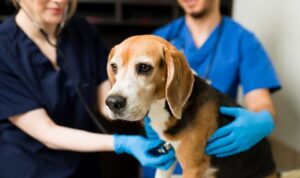
Purr-fectly Aware: Spotting Pet Illnesses & Seeking Vet Care!
Purr-fectly Aware: Spotting Pet Illnesses & Seeking Vet Care! Our furry friends bring so much joy and love into our lives. As responsible pet owners, it’s crucial for us to be able to spot any signs of illness in our beloved cats and seek veterinary care promptly. By understanding the secret language of cats and […]